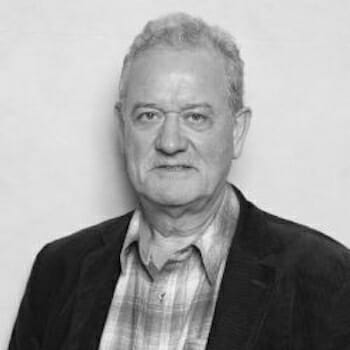
Stifling Press Freedom in Today’s Russia
Russia ranks 148th in the world for press freedom according to Reporters Without Borders (RSF). The atmosphere for independent journalists is stifling, and under Vladimir Putin independent news outlets have been either driven out of business or brought under state control. According to the Freedom House 2017 Report on the freedom of the press, independent media outlets routinely face aggressive tax inspections and criminal investigations.
The government has extensive powers to regulate media content under anti terror-ism legislation that carries prison sentences for promoting terrorism or extremism. Violence against journalists is still common, particularly in Chechnya, but increasingly the Kremlin is using the courts and the legal system to crack down hard on their media critics and those who try to maintain quality journalism or question the government line.
A classic example is Oleg Strekalov, a journalist and the founder of a small local media group based in suburban Moscow. Born in Ukraine, he was a successful businessman before deciding to pursue a career as a journalist. In 2008, he established an independent media organisation in the city of Chekhov, called Chekhov-VID.
Initially it was just an internet news portal. Then Strekalov added a weekly newspaper and, after a few years, a TV news channel. At its peak, Chekhov had a staff of about 50 including a well-known investigative journalist, Sergei Kanev, as Editor-in-Chief. For years Kanev had investigated police corruption and other misbehavior, risking his life in the process.
“Look, if you want a safe job, work in a library,” the New York Times quoted him as saying in 2009.
Early in 2014 Strekalov travelled to Ukraine to celebrate his grandfather’s 95th birthday. It was at the height of the Maidan revolutionary demonstrations in Kyiv. On his return, he spoke to Russian friends about his observations. At a time when the Russian media was reporting the Russian government line that Ukraine was being taken over by anti-Russian fascists, Strekalov expressed a contrary view that Ukrainians took to the streets not against Russia, but against poverty and general corruption in Ukraine.
The FSB soon came calling, and questioned him about his pro-Ukrainian sympathies. It was a friendly enough initial conversation at the local FSB office, but they then started questioning his friends and family members, and looking into his financial activities.
Strekalov fled to Germany, and the investigations then took on a darker complexion. At one point, armed and masked men called on his mother’s home early one morning and searched it, without a warrant. Eventually Strekalov was charged, in absentia, and a Russia-wide warrant was issued for his arrest. Now members of his family, both in Russia and in Ukraine, are receiving threatening phone calls.
His life has subsequently been turned upside down, and the father of five is currently a fugitive, hiding abroad, preparing for a Russian extradition request which could come at any moment. An indictment against him has been filed in a Russian court, claiming he led a criminal organisation which took over state land and sold it as residential plots. The police have also publicized details of the allegations via a site called crimerussia.com.
This is a classic example of how modern Russia deals with journalists who do not toe the party line. It has them prosecuted by loyal prosecutors in compliant courts and then wrecks their reputations with fake news. It has figured out that Interpol will refuse requests for international warrants if there is a hint of politics, so the charges concocted are purely criminal in nature, with no hint of the real problem.
In a sense, Strekalov should consider himself fortunate. Twenty years ago he might have been shot or blown up. In 1996, 19 journalists died in Russia as a result of their activities. Last year, “only” four died. While the reduction in statistics for the loss of life suffered by journalists and media staff during 2017 is to be welcomed, there is no room for complacency.
There are, instead of murder and physical violence, sinister forms of harassment through a vast investigative and manipulative legal infrastructure available to the Russian state which it uses to regulate through the courts, control and ultimately punish independent-minded reporters, editors and proprietors like Oleg Strekalov. As reform-minded local Chekhov city council delegate Nikolai Dijur wrote recently in an article for the liberal broadcaster Ekho Moskva, Chekhov VID’s TV studio has been closed, its equipment sold off and staff, now down to just 14, are looking for work elsewhere. Their role in the community is being filled by tame media financed from the city budget.
The Russian state’s power to control the media was further strengthened by a new law adopted in November 2017, which allows authorities to classify foreign journalists and media outlets as “foreign agents.” In practice, this means that Russia now has the power to force foreign journalists and media to register themselves as “foreign agents,” to submit their content to scrutiny and to reveal their funding sources. Failure to comply would lead to fines and judicial punishment.
Mogens Blicher Bjerregård, the President of the European Federation of Journalists (EFJ), has condemned the new law, stating that “Journalists should be able to work freely without having to label themselves as foreign agents. This is also important for democracy, as especially now with the Russian general election approaching, freedom of the media has never been more vital.”
